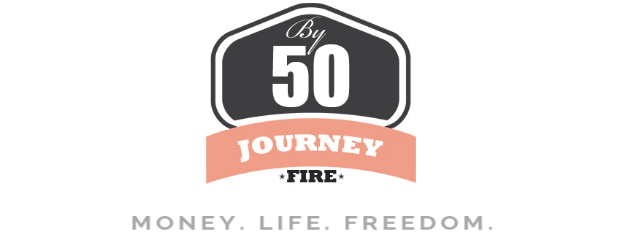Pay Off Your Mortgage Early Or Invest Extra Money?
If there’s extra money we’ll pay extra on our mortgage. Is that a good idea? Does pay off a mortgage early make sense? Should we pay off our mortgage first or invest extra money first? The more I think about it, the more complex it seems. I know, I want to get out of debt completely. Who doesn’t want to own our home free and clear…? Would it be amazing to not have a mortgage payment? Having to make a big mortgage payment every month for 15 or 30 years sounds torturing if you have less debt tolerance like me.
Let’s explore the pros & cons to help you make the right decision for you and your family.
PROS: Advantages of paying off a mortgage early
1. Peace of mind
Waking up in a paid-for house is absolutely a peace of mind one can have. The relief of knowing that you will always have a roof over your head no matter what life brings you is priceless. You don’t have to worry about making a big mortgage payment ever, plain and simple.
2. Saving money on interest
You save hundreds of thousands of dollars on interest by paying off your mortgage early. The sooner you pay it off, the more money you would save. Find out how much you could save if you pay extra here.
3. Get rid of PMI
If you make a down payment of less than 20% of the home purchase price on a conventional mortgage loan, then you pay private mortgage insurance (PMI) until your mortgage balance reached 80% loan-to-value (LTV) of the original value of your home (purchase price or original appraised value). If you are looking forward to the day when it ends, you probably want to pay extra (or at least until you’ve reached the 80% LTV point). Depending on your lender, your PMI can either be canceled automatically once you reach that point or terminated upon request.
4. Debt-free living
Imagine your life without any payments. Would it be amazing not owning anybody a dime? With no monthly mortgage payment, you are able to free up a significant amount of cash flow each month. You have more control over your lifestyle choices. If you don’t have a mortgage payment you have the ability to invest your money fully and more aggressively. Who know…you may even be able to quit your job! If those sound great to you then paying off your mortgage early may be a good fit for you. Life is better financially when you don’t have any debt.
5. Planning for retirement
It is a good idea to own your home free and clear before you retire from your job. It’s actually ideal to pay off your mortgage before you exit the workforce. If retirement is coming up on your radar, it’s a good idea to make a plan to pay it off as soon as you can. Eliminating your mortgage obligation early allows you to focus on your retirement goals efficiently.
6. Guaranteed rate of return
By pretending to pay extra on your mortgage as if you were investing your money in the stock market, you get a guaranteed rate of return regardless of how the stock market is doing. We know that market returns are not guaranteed. Past performance is not a guarantee of future results. If your mortgage interest rate is 4%, then you are guaranteed to get the 4% return no matter how good or bad stock market is doing.
7. A sense of accomplishment
Paying off a mortgage is a very long process. It takes hard work, consistency, and discipline. A 30-year mortgage takes 30 years to complete. That’s longer than 1/3 of an average person’s lifespan. Finishing off your mortgage early is really a BIG financial accomplishment.
CONS: 9 things to consider before planning to pay off your mortgage early
 1. Prepayment penalty fee
1. Prepayment penalty fee
Does your loan have a prepayment penalty? Check with your mortgage lender to see if your loan has a penalty fee if you want to pay off your loan early. You could lose money if you have to pay a hefty fee.
2. Opportunity cost
Given how low mortgage rates are these days, you’ll want to decide how to allocate your cash carefully. Especially, if you’re getting a tax break on the mortgage interest. The standard market return on long-term investment is about 7%. So there is a possibility of earning market returns higher than your mortgage interest rate.
3. Inflation
Inflation is an increase in the cost of goods and services over time or a decline in the purchasing power of money. Because a term of a mortgage is pretty long, 15-30 years. Considering the effect of inflation rate on your mortgage is crucial when you’re thinking about paying off your mortgage early.
Imagine you have borrowed money to buy your home on a fixed low-interest rate 30-year mortgage. Ten or 20 years from now when the cost of everything has gone up, you will still be paying the same amount of mortgage payment when you took out the loan years ago. Remember that your salary or wage will be adjusted for cost-of-living every year. For example, you generally get a raise for a cost-of-living increase at work (assume that it equals the rate of inflation) but your mortgage payment stays the same over the course of your loan, that means the mortgage payment will take up a smaller and smaller portion of your income over time.
Warren Buffett has said “If I know when I was going to live for the next 5 years of 10 years. I’d buy a home and I’d finance it with a 30-year mortgage. It’s a terrific deal… If I had a way of buying a couple hundred thousand single-family homes. I would load up on them. And I would take mortgages out on them at very low rates…“.
You get the idea 🙂
4. Tax break
When you paid off your mortgage, you lost the tax break. It’s important to consider if paying off your mortgage early outweighs the benefit of losing the tax break. The new tax law potentially makes homeownership less attractive in the long run. However, if you are no longer able to deduct the interest on your mortgage (half way or almost at the end of your loan) or you are taking a standard deduction on your federal tax return, paying down your mortgage makes more sense.
5. Other debt
Do you have high-interest-rate debt, specifically higher than your mortgage interest rate? If you do, paying down your high-interest-rate debt makes more financial sense.
6. Emergency fund
Life is full of unexpected events; loss of a job, tragic accident, health crisis, etc. Having emergency savings are a crucial part of a healthy financial life. Experts say having 3-6 month worth of living expense saved can help cover unexpected major expenses without going into financial hardship. If you don’t have enough money set aside to cover unexpected expenses, you should consider saving those extra money mortgage payments for a rainy day first.
7. Tax-advantaged investing and other investment opportunities
By putting the extra cash towards your mortgage, you no longer have that fund available for investment. Are you maxing out on your contributions to your tax-advantaged accounts like employer-sponsored retirement plans? Are you contributing enough to get the employer match? If you are on track with your accounts or feel comfortable about your portfolio, paying extra mortgage payments makes sense. You just need to make sure that you have enough put away. Compounding interest takes time to compound.
8. College fund
Do you have kids? Do you plan to pay for their college? If so, how would you plan to pay for their education? A student loan debt crisis is a real problem in the U.S. You may need to consider your college funding options before giving extra cash to your mortgage company, especially if your mortgage interest rate could be lower than the student loan interest rate.
9. Property tax and home maintenance cost stay forever
You don’t really own your home for free even after you paid off your mortgage. If the cost of maintaining your home and paying property tax forever is not appealing to you, paying off your mortgage early may not be a good idea. Instead, just pay the regular mortgage payment and later sell your home when you have enough equity to do so and become a renter. Leverage the profit by investing the money you gain from the sale of your house may be a better fit for you.

How to pay off a mortgage early
1. Pay extra on the principal
Paying extra even a little bit of extra payment towards the principal of your loan goes a long way. Not only will you save hundreds of thousands of dollars on interest but also shorten the life of your loan considerably. Most mortgage companies allow you to make an extra payment by having an “additional payment” line on the mortgage bill for you to fill in. The amount you put in here will go to pay the principal rather than the principal & interest portion of the loan. If there isn’t, you can send in an additional check for the extra payment for principal pay down. Make sure you write “additional principal” or “principal only” on that check.
2. Make extra payments
If you get paid bi-weekly you will get an extra paycheck for 2 months in a year. Instead of using those extra paychecks for something else, you could put the paychecks toward your mortgage pay down. Make sure when you make your payment write “additional principal” or “principal only” on the check so your payment won’t be treated as an advanced payment.
3. Reduce household spending
I’m not going to lie, owning a house is expensive. Paying on a large mortgage payment can be challenging, but add in the never-ending cost of home maintenance can be downright annoying. Be smart about how you spend your money on your home such as landscaping, lawn maintenance, decorating choices, etc. Whatever choices you make, make sure it doesn’t cost arm and leg in the long run. Imagine having a beautiful yard but costs a fortune to keep it pretty, would that be worth it to spend money on the yard instead of the house (the mortgage)?
4. Refinance to get a lower interest rate and/or a shorter term
If you have a 30-year mortgage refinancing to a 15-year mortgage might be worth trying if you can afford it. The payment on a 15-year mortgage is not typically double the payment of a 30-year loan. If you still can’t afford it, consider a 20-year loan instead. Shorter loan term mortgages generally come with lower interest rates. Having a 15-year or a 20-year mortgage will guarantee you to pay off your house faster than a 30-year mortgage. One thing to keep in mind though, refinancing costs money. You need to crunch in your numbers to see if the cost of refinancing outweighs other options you have available.
 5. Get a cheaper homeowners insurance
5. Get a cheaper homeowners insurance
Would it be nice if you could pay less on homeowners insurance premium and put the difference toward your mortgage pay down? Regularly shop around for a better rate. Combining your auto and home policy may give you a better deal too. Spending time and do some research could save you thousands on insurance.
6. Double check your tax assessment
Property taxes are based on the value of your house which is assessed by the county. If you think that your house is overvalued, challenge your tax assessment with your county. Make sure to check the deadline date for the appealing and plan accordingly. Also, make sure that you take full advantage of all available property tax reduction programs in your county. Some programs only require you to fill out a simple form to get your property tax reduced.
7. Monetize your home
Do you have an extra room or space in your house that you never use? An empty basement or a basement full of stuff is also a good candidate for speeding up your payoff date. Convert the basement into an apartment, build an apartment over the detached garage, rent out a guest room, or join Airbnb. The possibilities are endless.
How to know if you make the right decision
- It’s all about balancing your financial life between now and later. You need to weigh in your investment considerations to see if taking care of your personal finance issues first or paying off your mortgage first is better for you.
- It’s all about the emotion and the math. If deciding between the two is too complex, doing both at the same time may benefit you mathematically and emotionally.
- You don’t really know what the future will hold. Life is full of challenges. The path we choose to take now may or may not affect your life later. We don’t really know until it happens.
- The bottom line is that knowing & weighing your pros & cons can help you decide what’s best for you and your family.
Just like any other financial decisions, paying off a mortgage early is highly personal. While paying off high-interest rate credit card debt or other personal loans is a no-brainer. Considering paying off a mortgage early is personal and situational after all. Whether to pay off your low-interest rate mortgage is all about psychological effects. Ask yourself, what’s more important to you; getting out of debt completely or having a nice investment portfolio. If paying off your mortgage early helps you sleep better at night, you are probably better off with it.
With all that said, do you want to pay off your mortgage early or rather invest extra money?
Do you own your home free and clear? How did you pay off your mortgage?
Related Posts:
- Improve Your Finances In 5 Steps
- How To Tell If You Are House Poor
- 45 Things We Do To Save Money
- How To Save Money Every Month








